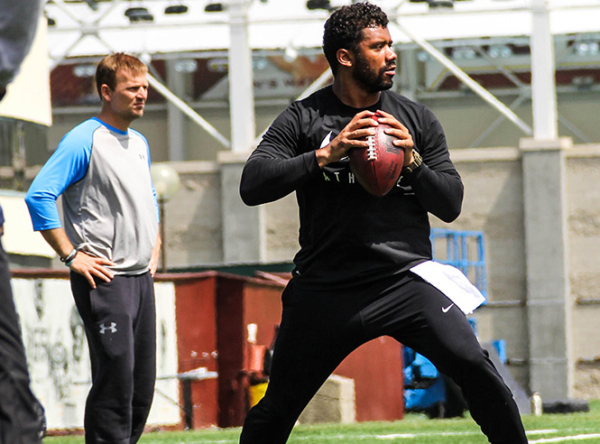7 Vital Steps To Help You Perform Better At Everything
The whole area of Sports Psychology and mental health are gaining exponential traction, but it’s surprising at how little is still understood about what Psychology applied to sport is. This very thing is addressed in the interview below with Mental Performance Coach Richard Dean.
Richard is a London-based practitioner and Senior Associate of the Royal Society of Medicine. He’s been a mentor for several NFL players, International Cricketers, International Rugby players, and International Soccer players. He has also been involved in six World Championship Boxing fights.
His academic work has been published by: American Education Research Journal, American Journal of Educational Science, Nova Science Publishers, and Physical Education and Sport Pedagogy Journal.
Richard, welcome to Premier Players and thanks for sharing your work:
A pleasure to be here.
First off, give an insight into some of your experiences:
My work has led to some amazing experiences. I’ve had the privilege to work in very high-profile, high-octane environments- such as the NFL, ATP World Tour Tennis Finals, in Boxing- World Title Fights; International Test Cricket, World Athletics Championships. Each experience of working with some of the best athletes in the world has been, and continues to be; deeply enriching.
One of my favourite memories was working with a World Title challenging Boxer at the O2 Arena, London. Looking out from the ring at a sea of 20,000 people, and a host of prominent people at ringside- knowing that all eyes in that arena are on your event; thrilling!
Another momentous occasion had me working with an American client who was fighting for an International title in Germany. Everything was stacked up against him, the logistics were difficult, the promoter made everything as hard as possible. And as my role was wider than just performance psychology, I had to deal with it all! I did- and we won! Despite everything being in the opponent’s favor. It was a great victory and we took the Championship to the USA!
Sounds incredible, so what exactly is Sport Psychology?
Sport Psychology looks at the influence that the mind has upon performance. It is proactively working mentally to be better. You don’t need something to ‘fix’ in order to benefit from working mentally! It is giving people the tools, so that they can apply consistent approaches in the most pressured moments, and providing a framework for dealing with difficult situations. That is Sport Psychology! It’s about making people more resilient, tougher, and plugged in to playing without distraction or white noise!
I want to get this across- Sport Psychology is NOT just about motivation and powerful speeches and behavior that is intended to rouse. In fact, I would like to assert that most of the time it is CATEGORICALLY not about that!
Applying specific, focused advice linked to developing mental skills and attitudes is so important. A great example is Russell Wilson- he has worked at this off the field, so that he can ‘just play’ on it!
How do you start with that process?
First, it should be determined how ‘mentally skillful’ an athlete is, and then collaboratively find ways to continually get mentally sharper in order to eliminate fine-focus errors.
I see it is as developing a strategy to ensure that you are the best possible you each and every week. As an athlete, finding comfort in the knowledge that you are preparing in the best way possible for YOU is a huge key! And that is so individual, I would advise and develop completely different ways of going about that process, dependent on the player’s individual personality.
So, just how do you determine someone’s mental fitness?
Having spoken to many athletes over the years, I believe I have a great handle on assessing the level of someone’s mental skills and mental health. Anecdotally, I’m able to see patterns from how people talk and conduct themselves- and I also use inventories if that’s what the athlete wants. I use a method called the TAIS, which was introduced to me by my colleague Dr. Michelle Pain.
I have undertaken programs of study at ‘the mecca’ of healthcare- the world-famed Harley Street, and have carried that forth, and distilled my education into a very practical and solution focused, rather than an overly theoretical MO.
How can someone help themself?
One very simple step that an athlete can take immediately is to:
1- think about your best performances
2- think about your worst performances
3- think about how you prepared leading to the best performances
4- think about how you prepared leading to the worst performances
5- determine if there is a relationship between your preparation and your performances
6- apply more of what led to the best
7- do less of what led to the worst
I do believe that this model can apply to pretty much any context – Sports, Work or Life!
I have spoken to athletes for hours to get the above exactly right- and it’s amazing for me as a practitioner to have an athlete tell me that due to our work together, they’ve had a eureka moment! They will often say something like- This is it! I identify with this! This is MY way! To help them get to that is wonderful!
Thanks Rich, if anyone wants to reach out, can they do so?
Happy to help if my capacity allows. People can e-mail me at rich.dean@talk21.com






